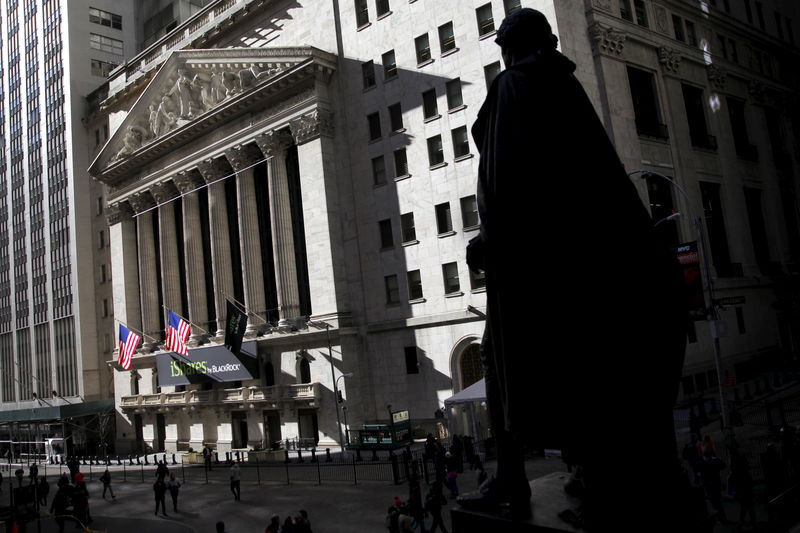By Geoffrey Smith
Investing.com -- U.S. stock markets opened mostly lower on Monday ahead of a pivotal week for the U.S. economy set to be dominated by discussions over a fresh package of fiscal measures to support a flagging economic recovery.
By 9:40 AM ET (1340 GMT), the Dow Jones Industrial Average was down 67 points, or 0.3%, at 26,453 points, while the S&P 500 was down 0.1% and the Nasdaq Composite was up 0.4%.
The oil and gas sector featured heavily in early trade, as oilfield services firm Halliburton (NYSE:HAL) reported a 46% drop in second-quarter revenue and a big net loss due to a $2.1 billion impairment charge. U/nderlying results were somewhat better than expected, however, pushing Halliburton stock up 5.4%.
Chevron (NYSE:CVX) stock fell 1.0% and Noble Energy (NASDAQ:NBL) stock rose 7.7% after the major said it would buy the shale player for around $5 billion in stock and assume another $8 billion in debt. That's the biggest deal in the sector since the coronavirus pandemic erupted, and is likely to repeat itself as a welter of shale companies struggle with a combination of heavy debt loads and low prices.
More intriguingly, financially troubled shale company Denbury Resources (NYSE:DNR) was forced to deny that it had issued a press release claiming to have received a buyout proposal. A press release described by the company as "fraudulent" had claimed the company - which missed a coupon payment at the end of June and is seen by some as a possible candidate for bankruptcy - had received an offer more than five times above its Friday closing level of 23c. Denbury stock was up 4c at 27c.
U.S. Crude futures, meanwhile, lost 0.9% amid broader fears for the strength of the U.S. recovery after the mayor of Los Angeles warned of possible fresh lockdown measures and the coronavirus continued to spread unchecked in Florida and elsewhere.
More encouragingly, Pfizer (NYSE:PFE) stock rose 1.8% and BioNTech stock rose 6.5% after the two companies reported that their experimental drug for treating Covid-19 had triggered positive responses in a phase 1 and 2 clinical trial in Germany. The tests showed that the drug triggered the creation of so-called T-cells that kill not only the virus, but the cells that the virus has infected. Such responses typically suggest a drug can provide more effective and longer-lasting immunity to a disease.
The news contributed to a 15% drop in Moderna (NASDAQ:MRNA) stock, inasmuch as test results for its experimental drug released last week looked weak by comparison. Skeptics have also pointed to a high ratio of stock sales by Moderna insiders relative to purchases in recent weeks.
AstraZeneca (NYSE:AZN) ADRs meanwhile fell 3.9% from their all-time high posted on Friday, on a buy-the-rumor-sell-the-fact move after it too published encouraging results of a phase 2 clinical study for its drug, being developed in partnership with Oxford University.
